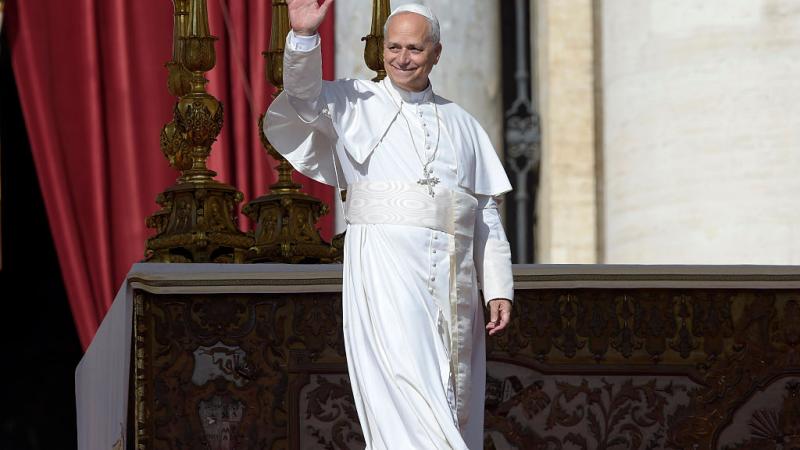'Naughty and Nice Retail List' takes defense of Christmas into commercial arena
"If retailers choose to profit from Christmas while pretending it does not exist, we encourage you to politely explain why and then patronize their competitors," explains Liberty Counsel.
Legal challenges to Christmas and holiday displays have been going on for decades. In order to combat the anti-Christmas sentiment outside of the courtroom, a nonprofit religious liberty organization is encouraging shoppers to do so with their wallets.
Liberty Counsel's Naughty and Nice List classifies retailers according to whether they censor or celebrate Christmas — an allusion, of course, to Santa's list of naughty and nice children from the Christmas standard "Santa Claus Is Coming to Town."
Urging Americans "to give the gift of Christmas back to the companies who support it," the group says, "If retailers choose to profit from Christmas while pretending it does not exist, we encourage you to politely explain why and then patronize their competitors."
The list forms part of Liberty Counsel's annual "Friend or Foe Christmas Campaign," which the organization launched in 2003 to counter a rising tide of opposition to the public celebration of Christmas.
"The war against Christmas is nothing new, and it is certainly evident today in the form of religious discrimination and hostility," says Liberty Counsel founder and Chairman Mat Staver. "Repressive forces have always had the same goal — to first secularize and then to eliminate Christmas and Christian symbols, celebrations and speech. In America, the First Amendment is a guard against censorship and religious hostility. In the retail market, the consumer can decide to patronize stores that recognize Christmas and avoid those that profit from Christmas while pretending it does not exist."
"Nice" companies that recognize and celebrate Christmas through their marketing, public displays and product inventory include, among others, American Eagle Outfitters, Bath & Body Works, Best Buy, Dillard's, Hallmark, Hobby Lobby, The Home Depot, JC Penny, Lowe's, Macy's, Nordstrom, Staples, Walmart.
Bath & Body Works' website, for example, encourages shoppers to find out "what Christmas smells like."
Best Buy, which doesn't sell traditional Christmas-themed items, is marketing a selection of Christmas movies and sheet music.
Home Depot, the home improvement store, has labeled its decorations "Christmas," not "holiday." It also prominently displays and sells Christmas trees, Christmas lights, and outdoor Christmas decorations.
Staples and Walmart sell thousands of Christmas decorations and Christmas-themed office supplies and products, also labeling them as "Christmas" not "holiday."
Those relegated to the "naughty list" include Academy Sports, Barnes & Noble, Burlington Coat Factory, Dick's Sporting Goods, Gap, Lord and Taylor, Rite Aid Pharmacy, Target, TJ Maxx, Walgreens, and others. Mostly, these retailers shun the word "Christmas" in their advertising in favor of secular alternatives like "holiday," Liberty Counsel notes.
Roughly 90% of Americans, and 95% of Christians, say they celebrate Christmas, according to a 2017 Pew Research Center survey. Slightly more than half polled, 52%, said they didn't care how stores greet their customers over the Christmas holidays, an increase from 46% who said the same in 2012. About a third, 32%, choose "Merry Christmas," down from 42% who favored the greeting in a poll conducted five years earlier.
"Republicans are much more likely than Democrats to say they prefer 'Merry Christmas,'" Pew found.
The basis for defending Christmas in the U.S. now is the First Amendment, which protects religious liberty. But before American independence and the adoption of the U.S. Constitution, early Puritan Christian settlers banned Christmas from being celebrated in some colonies.
They opposed the practice because they believed it was rooted in pagan European celebrations that were Christianized after Emperor Constantine made Christianity the official religion of the Roman Empire in 312.
Roman festivals honored pagan gods. The theatrical festival Juvenalia, for example, was celebrated on Dec. 25, birthday of Mithra, the god of the unconquerable sun. The Saturnalia, dedicated to Saturn, the god of agriculture, was observed the week prior to the winter solstice. The celebrations involved feasting, heavy drinking and gift-giving.
In the 4th century, Pope Julius I established Christmas Day on Dec. 25.
As more European settlers came to North America in the 18th century, they brought with them these customs and traditions — but before their arrival en masse, the dominant Puritans were able to enforce bans on Christmas.
In the Plymouth Bay Colony, founded in 1620, working on Dec. 25 was required, and toys for children were confiscated, as Christmas celebrations were strictly forbidden.
By 1659, the Massachusetts Bay Colony officially outlawed celebrating Christmas. Those caught celebrating it were fined five shillings per offense. While the ban was repealed in 1681, Christmas didn't become an official holiday in Massachusetts until 1856.
Christmas became a national holiday in 1870.
Many Christians celebrating Christmas on Dec. 25 claim they are celebrating the birth of Jesus Christ. However, scholars acknowledge that there's no record of Jesus being born on that date, and early Christians in the Bible didn't celebrate the holiday.
















